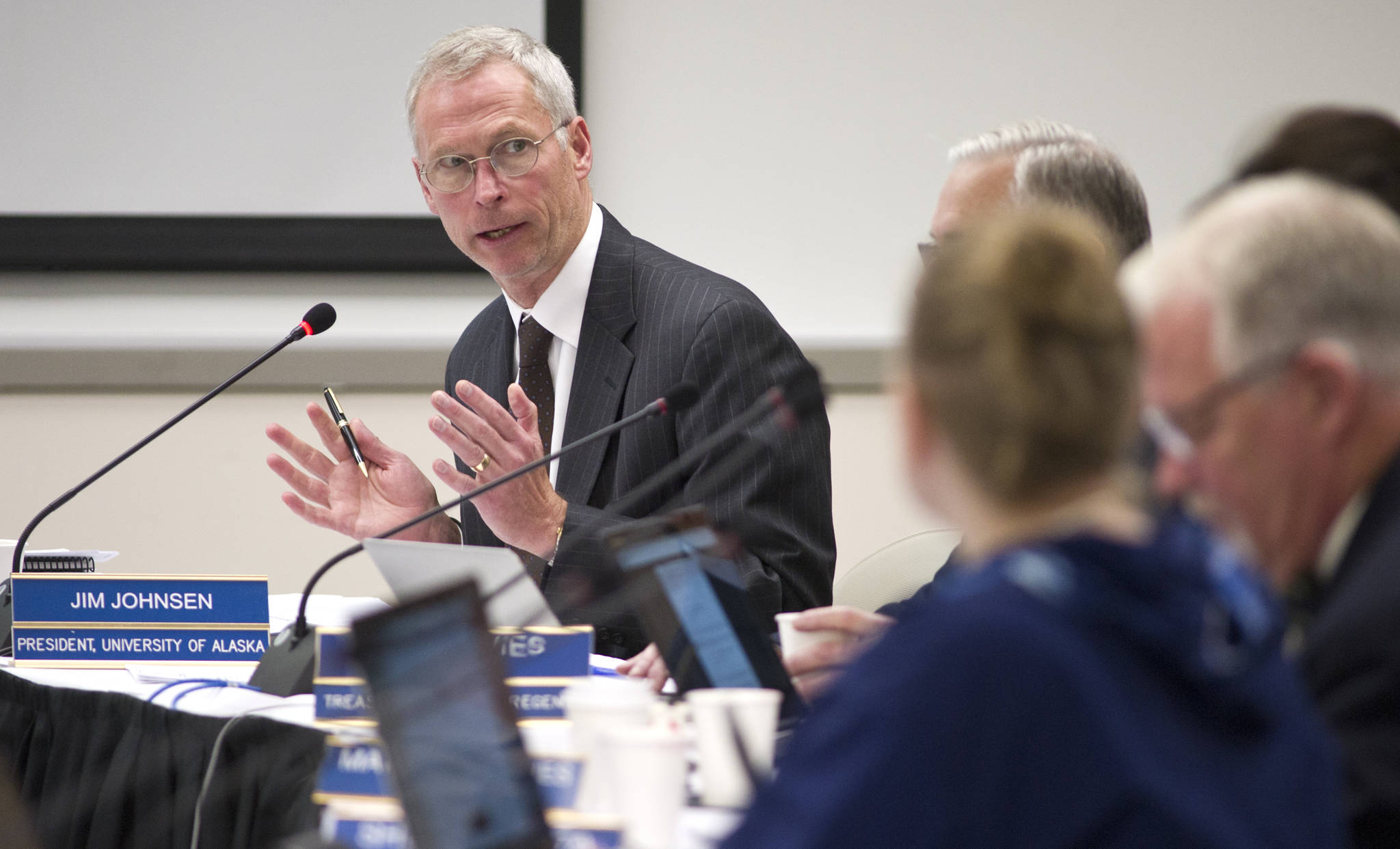As we face the rise of the COVID-19 health crisis in our state and our nation, the leadership team at the University of Alaska is addressing the pandemic with strength and care for our staff, faculty and students. In response to the crisis, when students returned to classes this week, our university looked much different than it did just three weeks ago.
Our university communities, like those throughout our state, now must study, work, and live differently. These new conditions bring new responsibilities for all of us, and a new way to serve our friends, neighbors and colleagues.
Our new reality also includes the mandate to reduce our operating costs by $45 million as of July 1, 2021. When the Board of Regents signed a compact with Gov. Mike Dunleavy last August, we averted a catastrophic $135 million budget cut this fiscal year. The compact has given us three years to reduce our operational expenses by $70 million — $25 million this year, $25 million by July 1, 2020 and another $20 million by July 1, 2021.
We achieved $25 million in reductions this year, but still have the remaining $45 million in cuts to achieve. Months ago, the Board of Regents established a process to make the remaining reductions, and tasked the university chancellors to review and further reduce academic programs and administrative costs. Due to our notice and “teach out” requirements, those decisions need to be made by the Board of Regents in early June 2020. The added costs and reduced revenues caused by the rapidly spreading COVID-19 make these decisions even more critical and urgent.
The recommendations from each university provided this week have been very difficult to make, but they were made in the spirit of transparency and with input from staff, students, faculty and community members at each campus either by attending a forum, writing an email or letter or expressing your views personally.
As we evaluate the choices over the next several months our commitment to you is to continue to be transparent, inclusive and to work together to best position the university to serve the needs of our students and the state.
Now the second phase of the review process begins. The chancellors’ recommendations will be reviewed by the president before being sent to the university’s Academic Council. From there, a committee of the Board of Regents will review the recommendations and draw up a list of final reductions to present to the full Board of Regents in June.
At every decision point, we know there are students, faculty, donors, community members and employees who have an interest in the outcome. As we go through this review process considering cost, demand, and other data, as well as qualitative factors, we will do so with compassion. We also recognize that as we make decisions about what programs to reduce or discontinue, we must preserve what is core to our mission so we can adapt to this fast changing demographic, technological, economic, and epidemilogical world.
Between now and the board’s decision in June, there will be many opportunities to provide input and testimony. Virtual town halls will be held and all the relevant program and budget information will be posted at . Additionally, each university has a website with university-specific information. We urge you to check the websites often and add to your calendar the dates for virtual town halls, committee meetings, and public testimony opportunities.
We are all living in difficult and stressful times, with multiple forces pressing on us all. Rest assured, the University of Alaska — UAA, UAF and UAS — is strong. We will weather these unprecedented times, using all tools available to do what’s right for our university, for the students we educate and the communities and state we serve.
• Jim Johnsen is president of the University of Alaska, Rick Caulfield is chancellor of University of Alaska Southeast, Cathy Sandeen is chancellor of University of Alaska Anchorage and Dan white is chancellor of University of Alaska Fairbanks. Columns, My Turns and Letters to the Editor represent the view of the author, not the view of the Juneau Empire.

